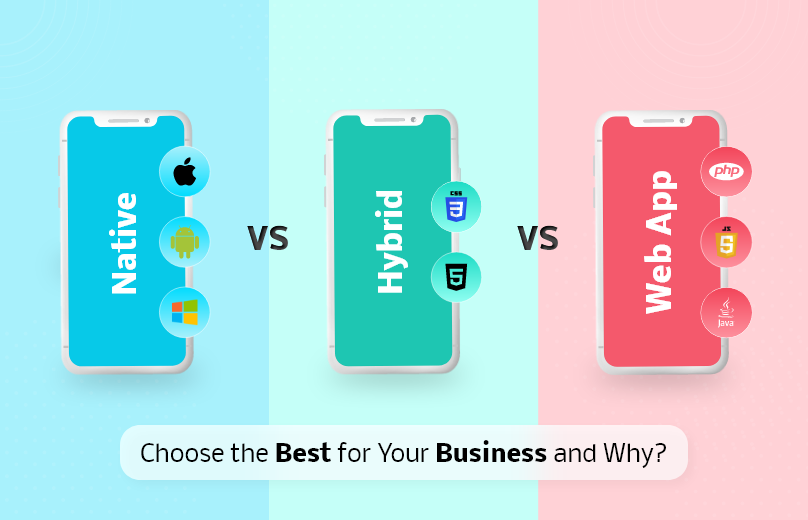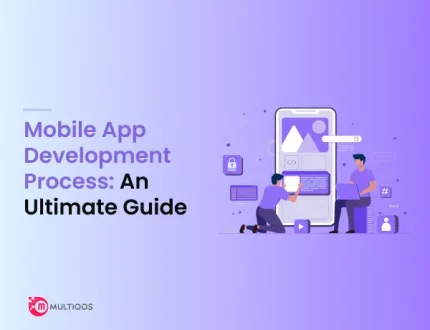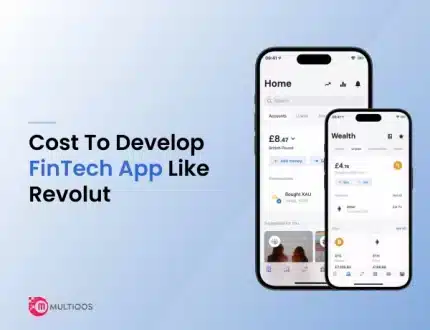Native vs. Hybrid vs. Web App – Choose the Best for Your Business and Why?

Table of Contents
- Introduction
- What Is Native Application Development?
- What Is Hybrid Application Development?
- What Is Web Application Development?
- Which Is the Better Solution for Businesses: Web, Native, or Hybrid?
- Elements to Think About While Picking Either Native App Vs Web App Vs Hybrid App
- Cost Factor for Native Vs. Hybrid Vs. Web App Development
- Wrap Up
- FAQ on Native Vs Hybrid Vs Web Apps
Introduction
Mobile applications have come up as the most effective business tool. Their effectiveness in engaging with customers is unrivaled. Mobile apps offer users a more convenient experience with easy access to services, ranging from banking to ridesharing.
As per Comscore, mobile phone users devote 90% of their time to apps and 10% of their day on the web. Further, the statistics project that mobile applications are likely to earn $935.2 billion by 2023. Thus, the finest investment you can make right now is on a mobile app for your brand.
There are several arguments in favor of Mobile App development for businesses. Mobile alerts communicate with customers directly and keep them up to date. The usage of mobile applications rather than websites also aid in client retention. But which one should you go with?
There is no need to be concerned if you do not understand the distinctions between the three accessible alternatives for app creation. This guide will teach you all you need to understand about native, hybrid, and web applications.
What Is Native Application Development?
Native apps are designed to run only with certain operating systems. An iOS app will not operate on Android, and conversely. To improve the user experience, native applications adhere to strict rules. Developers can create programs that take advantage of all of an operating system’s functionalities. Native app development necessitates the creation of unique apps for each platform. As a result, developing such apps may require more time and money. The reward, however, is improved performance.
Advantages of Native Applications
- Enhanced User Experience: Native apps can also make greater use of offline mode features. Concentrating on a unified platform improves the app’s efficiency. All of these variables work together to enhance the overall customer experience.
- Improved Performance: Whenever an app is designed for a certain operating system, it has high-performance statistics. This is owing to improved memory and storage efficiency accomplished by code. Native mobile apps are also easier to modify and operate.
- Better Security: Native programs, as opposed to hybrid apps, may fully leverage the hardware capabilities. As a result, it provides consumers with great data security.
- Functionality: These apps offer access to the latest features as soon as they are launched, allowing developers to easily integrate them within the app.
- Personalization: Native applications can assist in adjusting the layouts. You can have the greatest design while still providing an outstanding user experience with these applications.
Disadvantages of Native Applications
- Cost: The cost of building native mobile apps rises in tandem with their complexity. The demand for quality resources and competent developers raises the overall cost of the procedure.
- Time-Consuming: It takes extra time since programs must be created independently for each platform. Even designing a single native app takes longer than constructing a hybrid mobile app.
Technology Stack
Native app development in Android and iOS Application Development necessitates the use of separate frameworks.
iOS App Development:
- Objective-C: A scripting language with a fantastic development experience and a plethora of accessible libraries. It also works with other development techniques.
- Swift: Swift is Apple’s newest programming language, which is intended to replace Objective C. It also outperforms Objective-C in terms of performance. Swift is now used by all of the most recent applications due to its enormous capability and ability to produce a smoother experience for users.
Android App Development:
- Java: This programming language is utilized not just for mobile applications, but also for desktop and online development. It gives developers accessibility to a powerful library that allows them to utilize the many Android OS functionalities.
- Kotlin: This scripting language was created particularly for Android to operate with Java. Kotlin is supported by Google for Android development and is available as an alternative to the Java compiler in Android Studio. Kotlin shortens the programming time necessary for app development..
What Is Hybrid Application Development?
While native applications are designed for a specific platform, hybrid apps offer cross-platform capabilities. This implies that hybrid applications can operate on various platforms at the same time. Developers can create a single app that runs on both iOS and Android. These apps can be considered containers for websites. A Hybrid App Developer mostly makes use of the rendering engine of the operating system’s built-in browsers.
Advantages of Hybrid Applications
- Accessible across Multiple Platforms: Since hybrid applications do not need to build distinct code for each platform, applications can operate on both iOS and Android with almost the same basic code.
- Saves Time: One piece of code will work on both iOS and Android devices. A hybrid app developer just has to work on one piece of code, which saves time.
- Easy Maintenance: As there is only one core script, updating the software is simple. To correct an issue, the user does not need to download the most recent version.
- Pocket-Fixing: As just one base code is required for both systems, development expenses are dramatically reduced. As a result, it is far less expensive than native mobile apps.
Disadvantages of Hybrid Mobile App Development
- Internet Connection Required: As Webpages are wrapped in native applications, you must be connected to the internet to utilize all functionality.
- Insufficient User Interface: Several functionalities are jeopardized since the interface must be compatible with both systems. The user interface in hybrid apps is not as robust as it is in native apps.
- Native App Developer Involvement: Many features concerned with hybrid mobile apps necessitate the assistance of a native app developer, which may incur additional expenses.
Technology Stack
The following are the three most common frameworks for hybrid mobile application development.
- React Native: Facebook created this open-source, cross-platform compatible software. It has a simple user interface, good speed, and quick development times.
- Xamarin: Microsoft maintains and heavily supports this open-source framework. Xamarin is appropriate for basic projects and is straightforward to maintain. It is typically used for business-related initiatives.
- Ionic: Ionic develops mobile apps using technologies such as JavaScript, CSS, and HTML. It is simple to understand and use, but it can be difficult to keep up with. The luster of Ionic has gone with the introduction of React Native.
Also Read : Flutter VS Xamarin VS React Native: What’s Best in 2023?
What Is Web Application Development?
A web app provides a native-like experience and can operate on all browsers and devices, such as a laptop, tablet, smartphone, smartwatch, or television. The only condition is that the device must have a browser. If you want to target multiple platforms with a single application, choose Web App Development. These applications serve best rather than designing many apps.
Advantages of Web Applications
- Compatible With Multiple Platforms: When you design a web application, you can quickly make it work on any platform without spending any more time improving it.
- Instant Updates: With hybrid applications, people always have access to the most recent versions of your application, eliminating the need to install updates.
- Usage Of Widespread Technologies: While web apps can be produced with a range of technologies, selecting the finest software development business has never been a challenge for companies.
Disadvantages of Web App Development
- Restricted Access: A web service cannot access your device’s built-in functions such as the camera, storage, contacts, and so on.
- Basic Production: For basic applications such as new publishers and online retailers, web apps run smoothly.
Technology Stack
- Frontend Web Development Stacks: The frontend, often known as client-side, is the interface through which people interact. The client-side of the online solutions is an e-commerce store in the browser. Visual effects, graphical design, and user usability are all critical components of a good frontend. To create the front end, developers employ a loosely defined set of tools known as the frontend tech stack, which includes HTML, CSS, JavaScript, frontend UI frameworks, and CSS preprocessor.
- Web Development Stacks for the Backend: Business logic, authorisation, database management, and synchronisation with the client app are all handled by the backend, which is not visible to end-users. It is made up of servers, a system, and the applications that operate on it, and is also referred to as the server-side. Backend development necessitates the use of these web development stack components.
Which Is the Better Solution for Businesses: Web, Native, or Hybrid?
Each app type listed above has its own set of advantages and disadvantages. Choosing the appropriate choice necessitates a thorough grasp of your company’s requirements. To provide comprehensive reach, large enterprises frequently use a combination of native, hybrid, and web apps. However, before deciding with a mobile app development company in florida, you should analyze what you expect from the app.
Native app development is the way to go if you want an app that provides an exceptional user experience. Native applications offer a significant user experience since they are tailored to the demands of a certain platform. You can also employ native applications if you just want to target consumers of one operating system.
If you don’t want to invest a lot of money on your app but yet want to gain cross-platform awareness, hybrid apps are the ideal option. Their cross-platform usefulness will generate more revenue, and they are also prepared to operate for a shorter period. The utilization of a single code base will also need a small staff of coders, which will reduce the required technical competence.
Finally, if you just want a mobile-friendly extension of your website, you must use web applications. Because web applications are inexpensive and simple to create, you can use them as a starting point for establishing your digital footprint.
Elements to Think About While Picking Either Native App Vs Web App Vs Hybrid App
When deciding on the sort of development with the help of Android App Developer, keep the following elements in mind:
- The app’s efficiency.
- The type of user experience you intend your app to provide.
- The app’s feature richness.
Be quick, responsive, and dependable regardless of the strategy you choose. With the rising use of mobile apps, people expect better mobile experiences. As a result, meeting their expectations becomes critical.
Whatever technique you choose for iOS or Android Application Development, maintain the following points in mind:
- Your app’s content and services must have simple access to your app’s API architecture.
- Ensure that the mobile app you create is an augmentation of your brand rather than a carbon duplicate of your company’s website.
- Examine and analyze the users’ expectations and behavior at all times, and tailor your strategy accordingly.
Cost Factor for Native Vs. Hybrid Vs. Web App Development
It is critical to analyze the costs associated with each of the app development options. Nevertheless, you should not base your decision only on price. In terms of app development, a rich user experience is critical to success. As a result, before choosing a development strategy, you should evaluate the experience for users. You can hire mobile app developers to assist you in deciding which technique to pursue.
Wrap Up
The decision between native, web, and hybrid application development is influenced by several variables. These elements include company needs, app specifications, the designer’s experience, and the application development timeframe. You must realize that each sort of app provides a unique user experience. As a result, before commencing development, it is critical to understand the benefits and drawbacks of each notion.
Let’s Create Big Stories Together
Mobile is in our nerves. We don’t just build apps, we create brand. Choosing us will be your best decision.
FAQ on Native Vs Hybrid Vs Web Apps
You should have a good sense of how your app will grow over time. Feedback from consumers who have spent time using the app is one of the finest indicators for app developers. You, as the app developer, should identify strategies to fix them as soon as possible. The trick, of course, is to remain open to new and inventive ideas. This necessitates investigation and testing of your discoveries. As long as you can determine what your clients want, you will always be able to design your app in such a manner that it provides value to its end customers consistently.
This is a common question among Android or iOS App Developer. Well, that depends on a variety of circumstances. These include:
- The introduction of new technologies that your app may use.
- How your competitors are faring.
- Negative criticism that shows your app’s flaws, which you must subsequently solve.
Try to keep it simple. Don’t use flowery or lengthy language in your explanation. Make your point to the user (i.e. its features and functionalities) as soon as possible. Brevity reigns supreme, just as it does in literature.
Get In Touch








